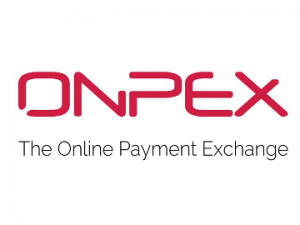
If commerce is the engine of the global economy then payments is its petrol. Yet we are only able to drive commerce if we have the means to pay for it.
Only 20 years ago, we mainly shopped locally. We would visit local shops and supermarkets and buy services from local suppliers. The only time we had to pay in a different currency would be when we were on holiday. We paid with cash, card or cheque over the counter, over the phone or by postand all of it was handled by banks.
Online commerce changed this and changed it forever. Now consumers can select to pay in a multitude of ways, on a multitude of platforms and in a multitude of markets.
The question is, have banks caught up?
Not really. Banks deal with treasury, deposits, wire transfers and cash, but not with global payments in all its variations. This is caused by their legacy and inflexible core banking systems. A global thinking about online payments is exactly the forward thinking approach IT companies take to provide the necessary connectivity to global payment systems and make the handling and reconciliation of payments easier.
The role of a payment platform is to let the customer pay the way they want to and reconcile all payments methods in one place for the merchant. It is a simple ambition but, like many simple goals, it requires effort to achieve.
The payment platform has to support omni-channel payments, accepting payments however the customer wants to pay. For example, European consumers are predicted to spend €44bn this year on mobile devices, an increase of 89% from 2014. In comparison, spending on PCs will grow by just 6%, according to Ecommerce News. So, the platform has to be ready to support this growth and change.
It is not just channels that the payments platform supports, multiple markets and currencies need to be supported too. No country is booming in ecommerce more than China is and after reports in June from Reuters of how China is to allow foreign ownership of ecommerce firms, this growth will only increase. Consumers and merchants will want to get access to the market and buy goods and services. Payment platforms can bridge the gap and facilitate the currency conversion needed to support this and also ensure compliance with local laws.
Equally, the payment platform has a critical role to play in managing and supporting treasury functions. Cash management is the central component of any treasury function. Payment platforms can offer high levels of transparency, allowing the merchant to keep track of their cash flow, giving greater cash and liquidity management. Also, when payment platforms offer multiple currencies, FX risk can be reduced through increased automation.
The ability to provide this requires a fleetness of foot that traditional banks simply do not have. Payments is such a fast moving and innovative sector that by the time a bank researches, procures and selects new technology it will more than likely be obsolete. It remains to be seen whether banks will convert into software companies with a banking license or stay in the traditional role.
This has left a gap in the market for challenger companies to come in and offer global payment solutions that are fit for purpose by being simple, transparent and automated. Some of the traditional banks are suspicious of new companies whether or not they are following international rules and regulations appropriately. This is not the right attitude though as the new players are regulated entities as well. Banks and payment companies do not threaten each other, they complement each other. They complement each other because each has a distinct role to play in commerce.
Making payments swift and seamless requires technology and thinking that is swift and seamless. This is the kind of approach found with hungry entrepreneurs and innovators.
Where, then, does this leave the traditional bank? Actually, it leaves them in a very secure and profitable space.
The fundamental role of the bank is to manage deposits and cash. Banks invest, they lend, they borrow, they, in theory, make money grow. It is the traditional role for the traditional bank and there is nothing wrong with it at all. When done properly, it is what banks are best at.
So this is where banks and payment platforms can complement each other and work in harmony.
The payment platform allows the rapid and secure transfer of money from one bank to another. The role of the bank is to look after those deposits when they arrive there. Working together, the bank and payment platform can have symbiotic relationship that isn’t just beneficial to each other but to the wider economy.
Each side has strengths and each side should play to those strengths to continue to drive the payments industry towards the future.
Christoph Tutsch is the founder and CEO of ONPEX. He set up and funded the business in 2010 to provide businesses with a better way of handling online payments. A lifelong entrepreneur, Christoph was previously co-founder and director of several companies in the telecoms and marketing industries.








